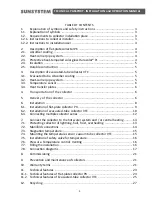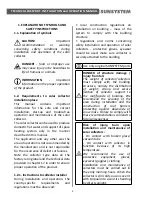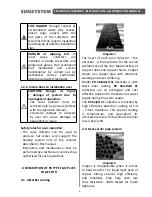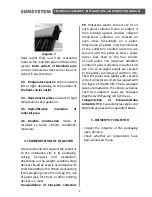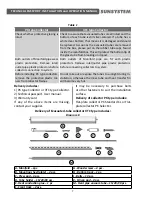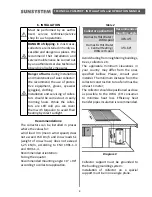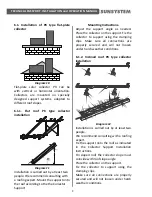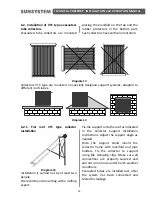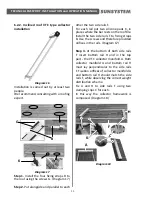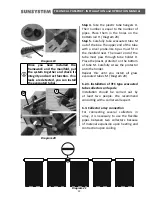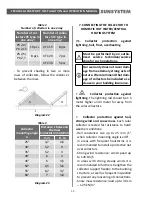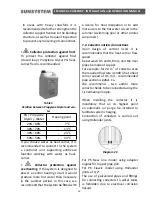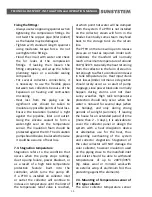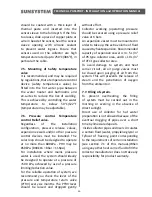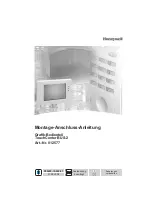
8
TECHNICAL PASSPORT. INSTALLATION and OPERATION MANUAL
TECHNICAL PASSPORT. INSTALLATION and OPERATION MANUAL
TECHNICAL PASSPORT. INSTALLATION and OPERATION MANUAL
TECHNICAL PASSPORT. INSTALLATION and OPERATION MANUAL
6. INSTALLATION
Must be performed by an autho-
rized service technician/service
shop for such operations.
DANGER of slipping.
In most cases,
collectors are installed in hardly ac-
cessible and dangerous places. We
recommend that installation and
service maintenance be carried out
by an authorized service technician
observing all safety measures.
Danger of burns
during installation
and maintenance of solar collector:
We recommend the use of protec-
tive equipment, gloves, eyewear
(goggles), clothing.
Installation and servicing of collec-
tors should be carried out in early
morning hours. While the collec-
tors are still cold you can cover
them with tarpaulin to avoid their
heating by direct sunlight.
Recommendations:
The collectors can be installed in places
where the values for:
wind load Vm (mean wind speed) does
not exceed 150 km/h and snow loads Sk
(weight of snow mass) does not exceed
1,25 kN/m, according to ENV 1991-1-3
and 1991-1-4.
Recommended orientation:
Facing the equator
Recommended mounting angle: 10 ° ÷ 90°
according to collector application.
Table 2
Collector application
Recommended
mounting angle
Domestic Hot Water /
DWG
+
pool
30°÷45°
Domestic Hot Water
+ Central Heating /
DWG
+
CH
+
pool
45°÷60°
Avoid shading from neighboring buildings,
trees,
collectors etc.
The applicable minimum clearances in
your country may differ from the ones
specified bellow. Please, consult your
installer. The minimum distance from the
collector construction to roof end must be
at least 1 meter;
The collector should be positioned as close
as possible to the DWG /CH consumer
to minimize heat loss
.
Efficiency heat
transfer pipes insulation is recommended
.
Diagrаm 9
Collector support must be grounded to
the buiding grounding system.
Installation of collector on a special
support must be in one single plane.


